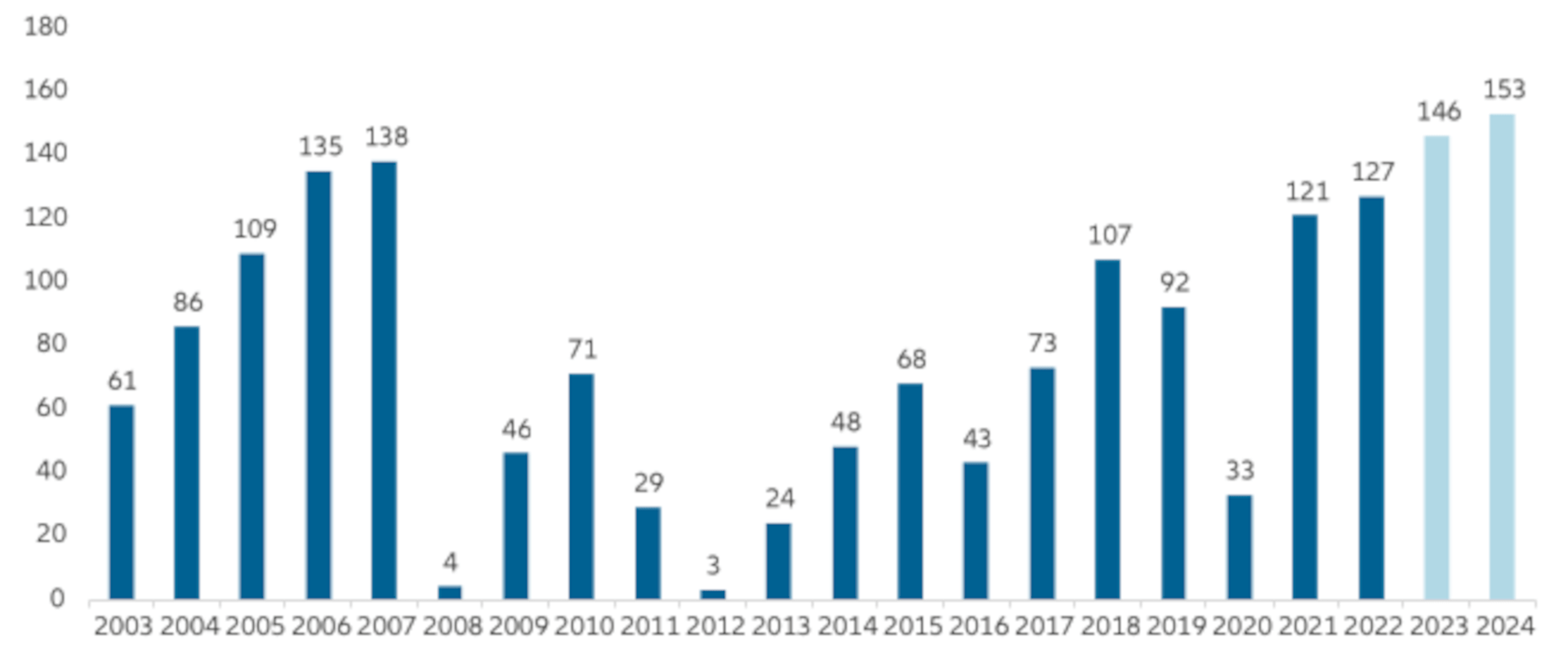Navigating Rates
European banks: steadying the ship?

A week on from the collapse of Silicon Valley Bank in the US, all eyes are on Europe with the merger of UBS following its takeover of Swiss rival Credit Suisse. Has the deal to rescue Credit Suisse – and the wider actions of European regulators – helped to restore confidence?
What has happened?
UBS has agreed to acquire its troubled Swiss rival Credit Suisse in a deal worth CHF 3 billion (USD 3.3 billion). Brokered by the Swiss government, this rescue avoids the disorderly failure of one of the world’s 30 systemically important financial institutions and the second-largest lender in Switzerland.
This follows a week of turmoil in the sector beginning with the collapse of Silicon Valley Bank in the US. Other US banks have faced similar struggles, including Signature Bank (now the third-largest bank failure in US history) and First Republic Bank (subject to continuing rescue efforts).1
Credit Suisse has underperformed the banking sector for several years, following losses related to the collapse of Archegos Capital Management and Greensill.
While in many ways idiosyncratic events – with each bank suffering from specific issues – these incidents can also be viewed as the ramifications of the fastest and largest rise in interest rates for more than 40 years, following years of easy monetary policy.
In effect, money has a cost again. The world economy has ultimately entered a period of re-adjustment and rebalancing. As so often in the past, this process leads to financial stresses and accidents.








